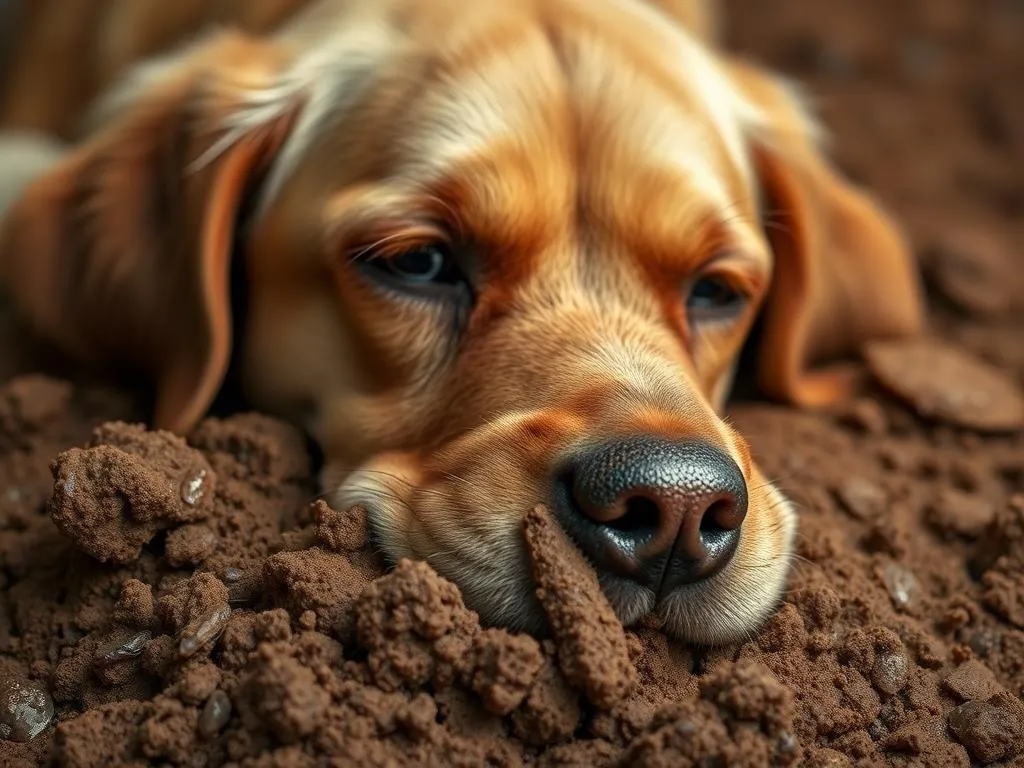
Monitoring your dog’s stool is an essential part of pet ownership. Changes in your dog’s poop can be indicators of their health. One such change that can cause concern among dog owners is the presence of mucus in dog poop. Understanding what this means, its potential causes, and when to seek veterinary advice can help ensure your furry friend remains healthy and happy.
Understanding Dog Digestion
The Digestive System of Dogs
Dogs have a unique digestive system designed to efficiently process their food. The journey begins in the mouth, where food is broken down by chewing and saliva. It then travels down the esophagus to the stomach, where it is mixed with gastric juices. From the stomach, the partially digested food moves into the small intestine, where nutrients are absorbed. The remaining waste then enters the large intestine, where water is reabsorbed, and stool is formed.
The intestines play a crucial role in digestion and waste elimination. They house beneficial bacteria that aid in breaking down food and synthesizing certain vitamins. Mucus is naturally present in the intestines and serves to lubricate the intestinal lining, facilitating the smooth passage of waste.
Normal vs Abnormal Stool
Healthy dog poop typically has a uniform consistency, is brown in color, and has a mild odor. The texture can vary depending on diet, but it should not be overly firm or watery. Abnormal stool may present in various ways, including changes in color, consistency, or the presence of mucus in dog poop.
The presence of mucus can indicate an issue within the digestive system. While a small amount of mucus can be normal, especially if it is clear and minimal, significant amounts or changes in color can signal a problem that warrants investigation.
What Does Mucus in Dog Poop Indicate?
Definition of Mucus in Stool
Mucus is a slippery substance produced by the mucous membranes in the intestines. Its primary role is to protect the lining of the intestines and facilitate the movement of stool. While a small amount of mucus in dog poop is usually harmless, an increased amount may indicate an underlying issue.
Common Causes of Mucus in Dog Poop
There are several potential causes of mucus in dog poop. Some of the most common include:
- Gastrointestinal Infections: Bacterial, viral, or fungal infections can lead to inflammation in the intestines, resulting in mucus production.
- Dietary Issues: Changes in diet, food allergies, or intolerances can upset the digestive system, leading to mucus in the stool.
- Inflammatory Bowel Disease (IBD): This chronic condition causes inflammation in the gastrointestinal tract, often resulting in mucus production.
- Parasites: Worms and protozoa can irritate the intestines, leading to excessive mucus.
- Stress and Anxiety: Changes in the environment or routine can affect a dog’s digestive health, sometimes resulting in mucus in their stool.
Symptoms Accompanying Mucus in Dog Poop
Identifying Other Signs of Illness
When monitoring your dog’s stool, it’s crucial to pay attention to accompanying symptoms. The presence of mucus in dog poop could be a sign of a more significant health issue if it occurs alongside other symptoms such as:
- Diarrhea: Loose or watery stools may indicate an infection or digestive upset.
- Vomiting: Frequent vomiting can lead to dehydration and indicates that something is wrong.
- Loss of Appetite: A sudden change in eating habits can be a red flag.
- Lethargy: If your dog is less active than usual, it may indicate illness.
- Changes in Behavior: Any significant behavioral changes should be noted and discussed with a veterinarian.
When to Worry
If you notice mucus in dog poop, consider the frequency and duration. Occasional mucus may not be concerning, but persistent mucus or a sudden increase in mucus warrants a visit to the veterinarian. Pay attention to any combination of other symptoms, as these could indicate a more serious condition requiring prompt medical attention.
Diagnosis and Treatment
Veterinary Examination
If you observe mucus in your dog’s stool, a veterinary examination is crucial. During a visit, your veterinarian will conduct a thorough physical examination and may ask about your dog’s diet and recent behavior. Tests that may be conducted include:
- Fecal Exams: To check for parasites and bacteria.
- Blood Tests: To assess overall health and organ function.
- Imaging: X-rays or ultrasounds may be needed to visualize any abnormalities in the gastrointestinal tract.
Treatment Options
Treatment will depend on the underlying cause identified during the examination. Some common treatment options include:
- Dietary Changes: Your veterinarian may recommend a special diet tailored to your dog’s needs, such as a hypoallergenic diet if food allergies are suspected.
- Medications: Antibiotics or antiparasitic medications may be prescribed to treat infections or infestations.
- Long-term Management Strategies: If your dog has a chronic condition like IBD, your veterinarian may suggest ongoing dietary and medical management to maintain their health.
Prevention Strategies for Dog Owners
Maintaining a Healthy Diet
A balanced diet is vital for your dog’s digestive health. Ensure you provide high-quality food that meets their nutritional needs. Consider incorporating:
- High-fiber Foods: These can promote healthy digestion.
- Probiotics: Supplements can help maintain a healthy gut flora.
- Hydration: Always provide fresh water to prevent dehydration.
Regular Vet Check-ups
Routine veterinary visits are essential for preventing health issues. Regular check-ups can help detect potential problems early. Ensure your dog is up to date on vaccinations and parasite control to minimize the risk of infections that may cause mucus in dog poop.
Stress Management Techniques
Stress can significantly impact your dog’s digestive health. Implement strategies to reduce stress, such as:
- Regular Exercise: Physical activity is essential for both physical and mental health.
- Socialization: Expose your dog to different environments and situations to reduce anxiety.
- Calm Environment: Create a safe and quiet space for your dog, especially during stressful times.
FAQs About Mucus in Dog Poop
Common Concerns from Dog Owners
Is mucus in dog poop always a sign of illness?
Not necessarily. A small amount can be normal, especially if the stool is otherwise healthy. However, significant or persistent mucus should be evaluated.
Can I treat mucus in dog poop at home?
While minor dietary changes and monitoring may help, persistent mucus should be addressed by a veterinarian to rule out serious underlying issues.
How often should I check my dog’s stool?
Regularly monitoring your dog’s stool during walks or bathroom breaks can help you quickly identify any changes that could indicate health problems.
Myths vs Facts
Myth: Mucus in dog poop is always a sign of a serious problem.
Fact: While excessive mucus can indicate an issue, a small amount may be normal.
Myth: You can diagnose your dog’s health issues through internet research alone.
Fact: While research can be informative, only a veterinarian can provide an accurate diagnosis and treatment plan.
Conclusion
Monitoring your dog’s health through their stool is an essential part of responsible pet ownership. Recognizing mucus in dog poop and understanding its potential implications can help you take proactive steps for your pet’s well-being. If you notice any concerning changes, don’t hesitate to seek veterinary advice. Maintaining a healthy digestive system is crucial for your dog’s overall health and happiness.









